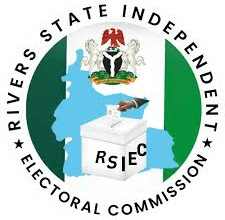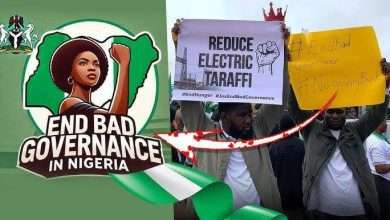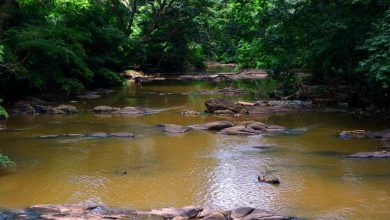
By Woke U
The African justice system should in actual sense be a proper model for democracy. And this is because it is a system that recognizes the sanctity of equity and fairness. From the cultural stipulations of our justice system, it is not really about what the crowd of people say; an opinion whether popular or not is still subject to the analysis of rightness and wrongness based on natural principles and the dictates of the human conscience. It is also a matter of how acceptable such opinion is to human sanity; this saves us the danger of accepting a crazy opinion simply because the crowd cheered it. Hence, in the African justice system, the chances of majority implied conspiracy are extremely slim because rightness and wrongness are hardly matters of robotic analysis; they are subjects of humanness and of moral considerations.
To some, it would sound parochial to analyse Rivers politics on the basis of ethnicity, topographical dichotomy and zoning. It’s also normal in line with the 21st century expectations to discourage the idea when especially, one considers what appears to be an urgent need for national integration in the federation called Nigeria.
It’s not out of place however to look at other reasons why the ethnic considerations might be crucial to the Rivers State political discourse.
It is noteworthy the fact that fairness and equity to Nigerians’ sensibility, still derive their genuineness from the degree to which ethnic and tribal sentiments are satisfied; in other words, the primordial emotions of historical and cultural distinctions still persist.
The western democratic philosophy is supposedly a humanist summary of tenets designed to protect individual and minority rights everywhere in the world. Yet, it is a proven fact that Democracy as an ideology, harbours some inherent contradictions necessitated by the impenetrable nature of certain cultures. Democracy has protected the individual rights just as it has also created a class society and deepened sectionalism and the fear of marginalization by the majority in terms of group rights.
It is apt to state that there may be no Nigeria without the protection of ethnic minority rights. Such protection is one of the critical factors that hold Nigeria together as a country. It is no wonder that groups measure their loyalty and commitment to the Nigerian cause based on their assessment of group based economic and social security vis-à-vis the distribution of power and the allocation of the commonwealth. And the preceding analysis is what forms the judgment that inspires our sense of equity and fairness; the federal character principle is built on it. Rotation of offices and the quota system are all its derivatives.
Although, advocates of meritocracy and efficiency will opine differently on the matter of ethnic balancing and inclusiveness but the fact of its sensitivity with regards to Nigeria’s national unity remains sacrosanct.
I can say that it is on the basis of the submissions above that a conscious effort was made towards ensuring that ethnic rotation and quota system in Nigeria are guided by, and woven into a broader North-South dichotomy. Going down to the grassroots, in line with that broader view, and in accordance with the seasoned wisdom of Rivers early statesmen, the Rivers state power rotation was structured into a distributive scheme of Riverine-Upland Dichotomy. Whether this device has sufficiently taken care of the sentiments is yet to be seen.
A point of note however, is the fact that the bedrock of the Rivers dichotomous invention are fairness, equity, inclusiveness and stability. It has been recorded and severally discussed that in 1999, some notable and prominent Riverine politicians, in the persons of A. K. Dikibo, Marshall Harry, Alabo Graham-Douglas, Mr. Rufus Ada-George etc., worked together to install Dr. Odili from the upland Orashi region as Rivers Governor. That act has been characterized by many as a display of faith in the principles of justice, fairness and equity.
Rivers sons and daughters of the Riverine extraction would naturally expect a commensurate reciprocity but unfortunately for the Riverine and fortunately for the upland, in 2007, Dr. Peter Odili, who hails from Ndoni, an upland community, decided to distort this flow of stability by installing another Upland Governor in the person of Rt. Hon. Chibuike Rotimi Amaechi who according to the Supreme Court became Celestine Omehia and Amaechi later. Due to internal party scuffles, these two brothers from Ubima, Ikwerre were locked in a legal battle for months; and Omehia was eventually removed from office leaving Amaechi, an Ikwerre upland brother to take up his mandate. Amaechi governed the state for complete eight years; two terms of four years each. So, by 2015 it will be 16 years of express rule by Governors from the Upland part of Rivers State.
In recognition of the earlier foundation of equity and fairness laid by the forefathers, and guided by the dictates of conscience, Rotimi Amaechi, in 2015 took a stand, declaring that it is sensible and just to let power return to the Riverine. But it is sixteen years since Rivers State deviated from that path of justice; plus, the politicians in whose time this pact was established have almost phased out giving way for the new breed. So, it was easy for people with faint knowledge of the configuration and power schematics; people who hardly appreciates this intended principle of equity as established by the grandfathers to counter the power rotation formula. And for pecuniary and individualized reasons, there was what looked like a conspiracy to install no one but a willing stooge. Regrettably, Dr. Goodluck Jonathan, an Ijaw man was the commander in chief of this conspiracy which in effect denied the Riverine the chance at Brick house. With a full deployment of all useful federal paraphernalia and with Nyesom Wike as the willing henchman, the Goodluck family truncated Amaechi’s plan of returning power to the Riverine. This sour political history and status of Rivers as was orchestrated by Dr. Peter Odili has been a bitter pill for the Riverine, for specific ethnic groups, and for others from the upland; including scholars, religious and traditional heads who have followed the history from 1999.
With the forced emergence of Nyesom Wike in 2015, by 2019, the Ikwerre ethnic group would have enjoyed 12 years of reign. When summed up with the 8 years of Odili, it means that Rivers upland has enjoyed an uninterrupted 20 years of reign and if by any chance Governor Nyesom Wike is returned in 2019, then the upland will be counting 24 years of reign in the Brick House.
There are several arguments regarding how power rotates in Rivers State; but it’s right to emphasize that most of the perspectives are for convenience and do not reflect the cardinal objectives of power rotation. And we cannot ignore the fact that the rotation of power is a subject of political party proceedings and decision, based on considered factors of equity and fairness.
There are 23 Local Government Areas in Rivers State; and these are clustered into 4 major ethnic/language groups. Below is the form of grouping along major languages and cultural affinity:
- OGONI- Khana, Gokhana, Tai, Eleme
- ORASHI- , Onelga, part of Abua/Odual, Ahoada east and Ahoada west
- IKWERRE- Kelga, Obio/Akpor, Obalga, Emohua, Etche, Omuma, Oyigbo
- RIVERS IJAW- Asalga, Akulga, Okirika, Ogubolo, Bonny, Andony, Opobo/nkoro, part of Abua/Odual
Note! Etche, Omuma and Oyigbo might make a case on the issue of being lumped together with Ikwerre. But what will it profit Etche, Oyigbo and Omuma to stand alone as minorities? Politics is about numbers, and sufficient number is most of the times derived from alliances. If core Ikwerre can comfortably, through her main votes and sympathy votes, produce a governor, then this distinct LGAs are better off in the Ikwerre alliance. And their cultural affinity and similarities make this analysis more logical. However, they have the right to reject the alliance and claim to be distinct loners in the Rivers political adventure, and the brunt of that will be only for them to bear.
By topographical delineation, we have Andoni, Opobo/Nkoro, Bonny, Degema, Asari-Toru, Akuku-Toru, Ogu/Bolo and Okrika (8 LGAs) occupying the riverine.
While the LGAs making up the upland include:
Ikwerre, Etche, Emuoha, Omuma, Oyigbo, Ogba/Egbema/Ndoni, Tai, Eleme, Gokhana and Khana, Obio/Apkor and Port Harcourt, Abua/Odual, Ahoada East, and Ahoada West.
The Riverine has waited patiently for years. Now, with the obvious abysmal performance of Governor Nyesom Ezenwor Wike, there are strong indications that APC will take over the Brick House come 2019.
A discerning mind will understand that the internal rumble within the APC signifies that the party is determined to take over power in Rivers State come 2019. In that case, I must state emphatically that the party must uphold the dictates of justice and fairness by ensuring that power returns to the Riverine/Rivers Ijaw division.






